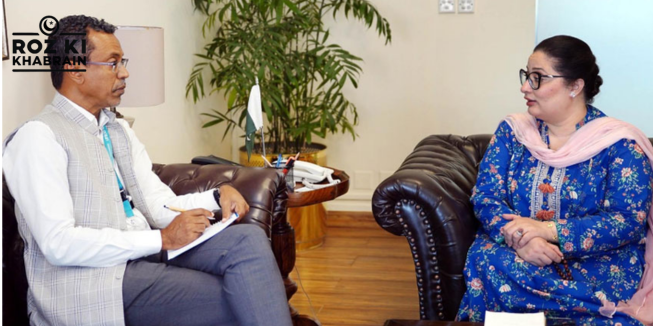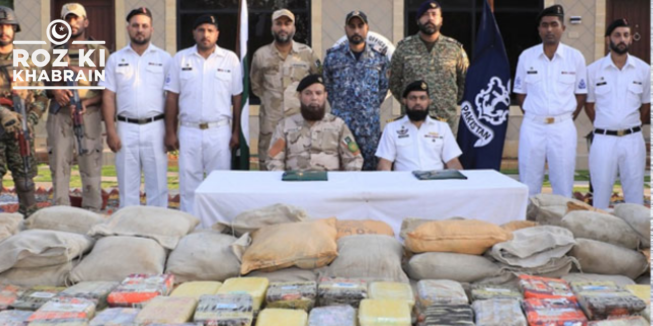“Recognizing the heightened vulnerability of children, especially the most marginalized, to climate-related disasters, we are committed to prioritizing child-focused climate adaptation and resilience strategies in national policies,” said Romina Khurshid Alam. She made these comments following the signing of a pivotal Memorandum of Understanding (MoU) between the Ministry of Climate Change and Environmental Coordination and UNICEF at the Pakistan Pavilion during the COP29 global climate conference.
High-level representatives from the federal government and the provincial governments of Sindh, Punjab, Balochistan, and Khyber Pakhtunkhwa expressed their collective dedication to safeguarding the rights and welfare of children affected by the climate crisis.
Federal Secretary of the Ministry of Climate Aisha Humera Moriani and UNICEF Deputy Executive Director signed the “Declaration on Children, Youth, and Climate Action,” a commitment by global governments to uphold priorities highlighted by children and youth worldwide.
Romina Khurshid Alam, speaking at the event, underscored the government’s top priorities, including enhancing access to education, health, and nutrition services in climate-impacted areas and investing in sustainable infrastructure to shield schools and communities from extreme weather events. She also stressed the importance of empowering children as key players in climate action, preparing them to become future climate-conscious leaders.
Pakistan also highlighted the significance of integrating children’s voices into policy decisions and supporting community-driven initiatives to involve young people in climate actions.
This agreement is a crucial step in protecting the lives of 112 million vulnerable children in Pakistan, who face the risks of climate-induced disasters, displacement, and trauma.
“We are committed to incorporating child rights and needs into Pakistan’s climate policies, particularly the Nationally Determined Contributions (NDC) 3.0, which will be a focal point at COP30 in Brazil next year,” stated Romina Khurshid Alam, Prime Minister’s Coordinator on Climate Change, during the signing of the declaration.
Nationally Determined Contributions (NDCs) are each country’s climate action plans under the Paris Agreement, outlining efforts to reduce emissions and adapt to climate impacts.
“We must ensure that our children are ready for the future they will inherit,” said Murad Ali Shah, Chief Minister of Sindh. “Our education system must reflect the realities of a world reshaped by climate change, preparing our youth for a green economy.”
Both the Government of Pakistan and UNICEF are deeply concerned about the disproportionate impact of climate change on children. Rising greenhouse gas emissions and other climate pollutants pose significant threats to children’s health, education, and overall well-being. Increased flooding and severe heatwaves expose children to risks far greater than those faced by children in the 1960s.




